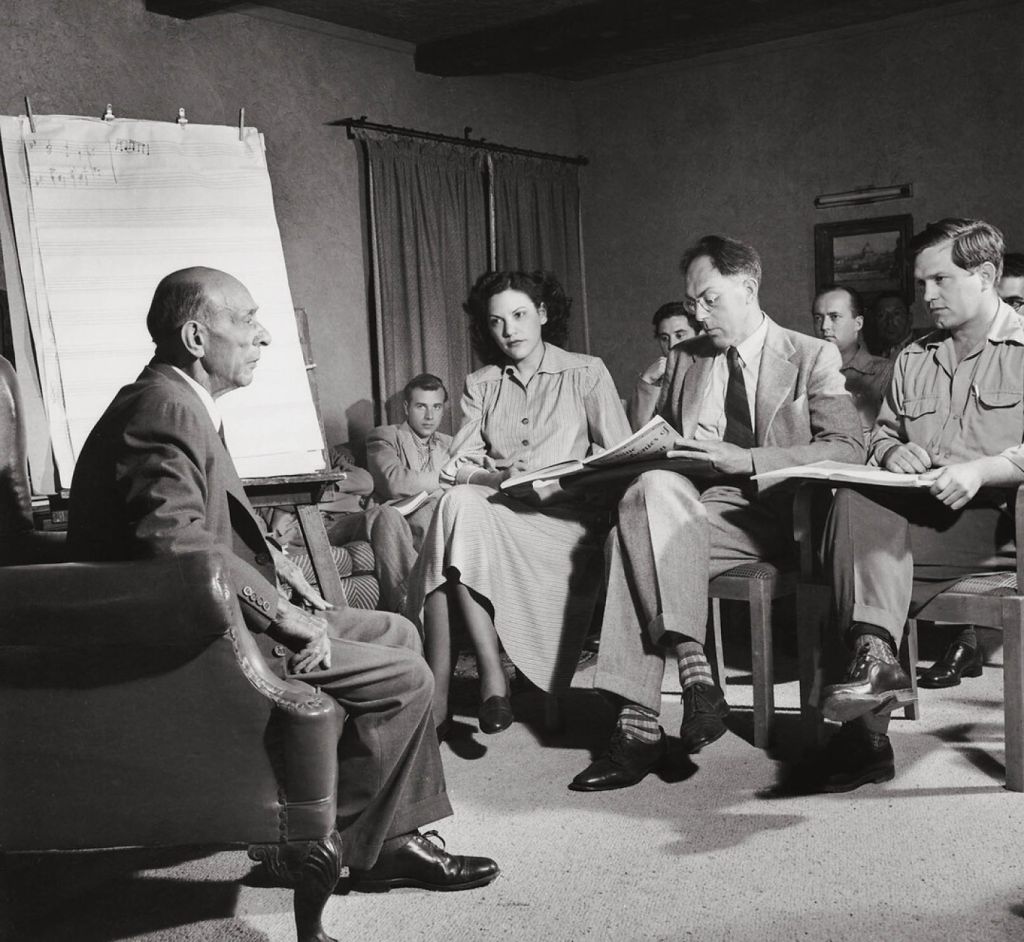The music mediation award LEARN TO HEAR was recently conferred for the first time in anticipation of Arnold Schönberg’s 150th birthday in September 2024. Initiated by the Arnold Schönberg Center and conceived in cooperation with the mdw’s Department of Music Education Research and Practice, this award—which will be conferred annually for a period of five years—commemorates Arnold Schönberg as a pedagogue. It is conferred upon projects whose concepts aim to impart familiarity with Schönberg’s compositional oeuvre and interdisciplinary artistic influence as well as with the music of the Second Viennese School and its heritage as manifested in today’s contemporary music. The winning music mediation concepts are to be realised in the form of “listening sessions” at the Arnold Schönberg Center and at selected locations in Vienna. In these sessions, new approaches to listening will be opened up together with their attendees in order to cultivate an understanding of the music of Schönberg, his pupils, and his artistic heirs and successors. The award’s call for entries will feature a different theme and target audience each year.

In the summer of 1948, Arnold Schönberg spent several weeks teaching and lecturing at the Music Academy of the West in Santa Barbara, California. In an interview with a local reporter, he spoke about the necessity of thoroughly cultivating audiences’ ability to hear and listen to new music: “In my teaching work, I emphasize ear training. The music student needs most to learn to be correctly receptive. We cannot teach everyone to be a creative artist—that cannot be taught. But we can teach many people to be receptive listeners.” Schönberg pointed out that the language of music had developed such that thoughts could be expressed in an increasingly precise and condensed manner. Listeners therefore had to be taught such that they would learn to hear and “understand the more remote harmonic relations and to appreciate the less commonplace melodic successions.” His credo was therefore LEARN TO HEAR (Santa Barbara News Press, 18 July 1948).
The concept recognised by this award’s jury, (Grenz)genial – Arnold Schönberg [(Borderline) Ingenious – …], focuses on how Schönberg transcended existing boundaries as the pioneer of a new composing method blazed the trail for 20th-century composing. The objective of this workshop is “to immerse participants in Arnold Schönberg’s multifaceted world and to provide them with new perspectives on his legacy by way of various approaches. By working on a variety of cognitive levels, all participants can be picked up where they are and involved in the workshop in an ideal manner. The selected listening examples are highly diverse in order to point out the broad range of musical styles in which Schönberg composed.” The introduced examples range from the late romantic string sextet Transfigured Night op. 4 to the free atonal Lied cycle The Book of the Hanging Gardens op. 15 and on to the dodecaphonic works of the 1920s (Piano Suite op. 25, Suite op. 29) and the harrowing Holocaust cantata A Survivor from Warsaw op. 46. In this way, an attempt is made to do justice to the broad musical spectrum that inhabits Schönberg’s oeuvre. A multidimensional approach to learning seeks to address the perceptual, sensory, cognitive, emotional, visual, and auditory levels. The workshop format (Grenz)genial – Arnold Schönberg was submitted by the mdw students Julia Berger, Lisa Maria Haček, Lena Maria Lazzari, and Emma Marjanovic.
This award is funded by the Arnold Schönberg Center Education Endowment. The initiative, idea, and concept were originated by Therese Muxeneder of the Arnold Schönberg Center. Responsibility for project coordination at the mdw is borne by Axel Petri-Preis of the Department of Music Education Research and Practice. The jury consisted of Arnold Schönberg Center Director Ulrike Anton, Therese Muxeneder, Christoph Khittl, and Axel Petri-Preis.

